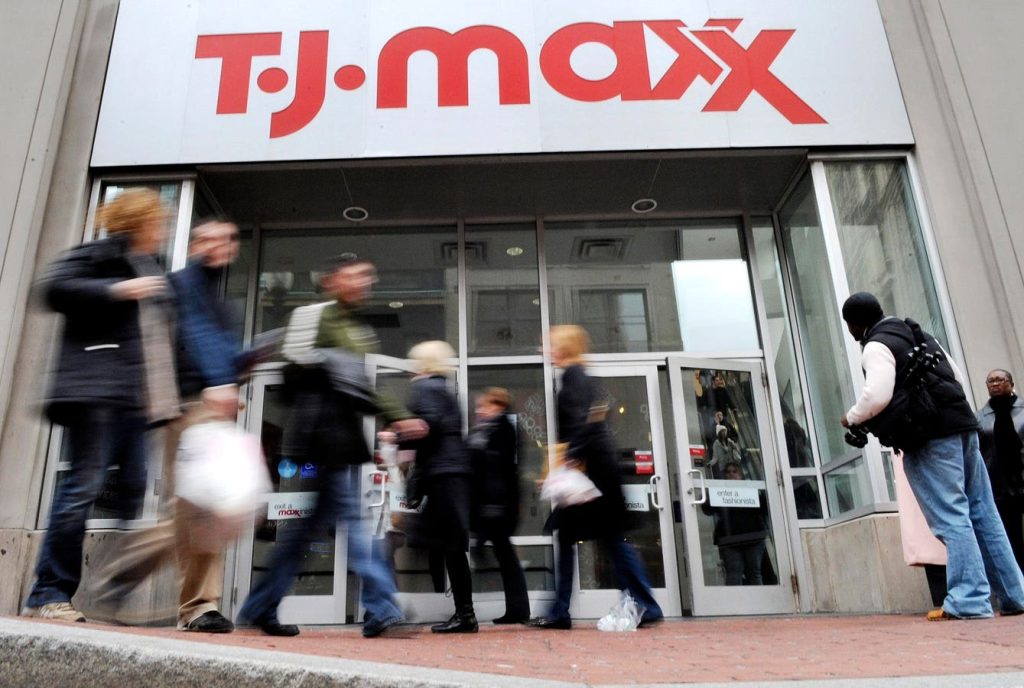Consumers are increasingly prioritizing value in their shopping habits. Gone are the days of excess disposable income, guaranteed raises, and low interest rates. This new economic environment negatively affects many large full-price clothing retailers while benefiting off-price chains such as TJ Maxx.
The Inflation Backdrop
Inflation is the main cause of concern. The prices of essential items such as food, rent, car insurance, and dining out have risen sharply, putting pressure on household budgets. Although inflation has decreased in the past year, prices remain significantly higher than they were a couple of years ago.
Due to high inflation, the Federal Reserve tightened monetary policy, sending mortgage rates from 3% in 2021 to more than 7% today. Mortgage payments as a percentage of income are at a 20-year high, and the average credit card rate is a staggering 27.7%.
On the positive side, the unemployment rate remains below 4%, overall consumer spending is still growing, and consumer and business confidence supports economic growth.
However, broad economic data can obscure changes in consumer behavior. Despite the macro statistics indicating stable spending patterns, several significant shifts are occurring beneath the surface, particularly for low- to middle-income consumers.
The Rise Of Value-Oriented Shopping
Consumers are choosing to spend more on essential goods and services rather than non-essential items. Recent comments and earnings results from Walmart provide evidence for this shift. “We have seen a pullback in discretionary spending,” said Walmart CEO Doug McMillon. When consumers do make discretionary purchases, they are placing more emphasis on finding value.
Value-oriented shopping refers to consumers seeking the best deals and discounts to get the most out of their money. Many people are now turning to off-price retailers for their shopping needs. Full-price clothing retailers like Macy’s are encountering major challenges in this new market environment. The winners are value-oriented chains like TJ Maxx.
Advantages For Off-Price Retailers
TJX Companies — the parent company of TJ Maxx, Marshalls, and HomeGoods — is perfectly positioned to capitalize on the consumer shift toward value.
Off-price retailers operate by offering goods at substantially lower prices than regular retail stores, usually at 20% to 60% below full retail prices. They obtain inventory through different purchasing strategies such as closeout deals, overruns, past-season merchandise, and department store closures.
TJX is already benefiting from the changing environment. In its latest earnings announcement, the company beat Q1 fiscal year 2025 profit expectations, grew same-store sales by 3%, and announced plans to open an additional 1,300 stores.
“The problem for other retailers is an opportunity for TJX,” says Ed Walczak, U.S. Equity portfolio manager at Vontobel, when asked about the outlook for the retail sector. Walczak also emphasized that TJX could benefit from additional attractive inventory resulting from Macy’s plans to close 50 stores by the end of the company’s fiscal year.
TJX has a history of performing well when the rest of the industry is in turmoil. Cameron Cohen, Co-Head of Single Name Fundamental Strategies at III Capital Management, points out that TJX managed to grow same-store sales during the financial crisis in 2008 and 2009 — a time when most retail stores suffered from a sharp pullback in spending. “TJX consistently outperforms in times of stress given its low price/off-price focus. So, if you are looking for a company that will do well in an economic slowdown, this is a good bet,” Cohen says.
TJX Stock Valuation
Is it a good time to buy TJX stock, assuming the trend toward value shopping continues or even accelerates in the event of a recession? From a pure valuation basis, the stock is not considered cheap. It has a one-year forward price-to-earnings ratio of 24.7 compared to a PE of 21 for the S&P 500, suggesting that the earnings and revenue growth plans may already be incorporated into the share price. Additionally, the stock has nearly doubled in the last five years and is currently trading at an all-time high.
While the economy is strong, a recession in the next year or two is certainly possible. In such a case, it is essential to note the difference between a good business and a good investment. TJX has proven it can grow its sales during an economic downturn, but that does not mean its stock price will rise. Even though sales increased during the financial crisis, its stock slid more than 40%. The best time to purchase TJX stock is likely coming out of a recession—not going into a recession.
If the economy slides into a recession, it is hard to see a scenario where TJX stock price rises as the rest of the market goes down. “The trade down from full-price retailers to the discount operators may be a good buffer for stores like TJ Maxx and Walmart as they acquire new shoppers seeking values, “says Marni Shapiro, managing partner at The Retail Tracker, which provides research and consulting services to the retail industry. But she goes on to note, “Recession is bad for retail. It is bad for consumer spending.”
The trend toward value-oriented shopping is changing the retail industry. TJX’s off-price retail stores, including TJ Maxx, Marshalls, and HomeGoods, are well-positioned to capture more market share. However, the stock valuation is high, and the share price already reflects much of the positive news.
If the economy avoids a major downturn, TJX should continue to benefit from value-conscious consumers. However, if growth falters, unemployment rises, and consumers cut back on spending, investors should wait for a more attractive entry point.
Read the full article here










